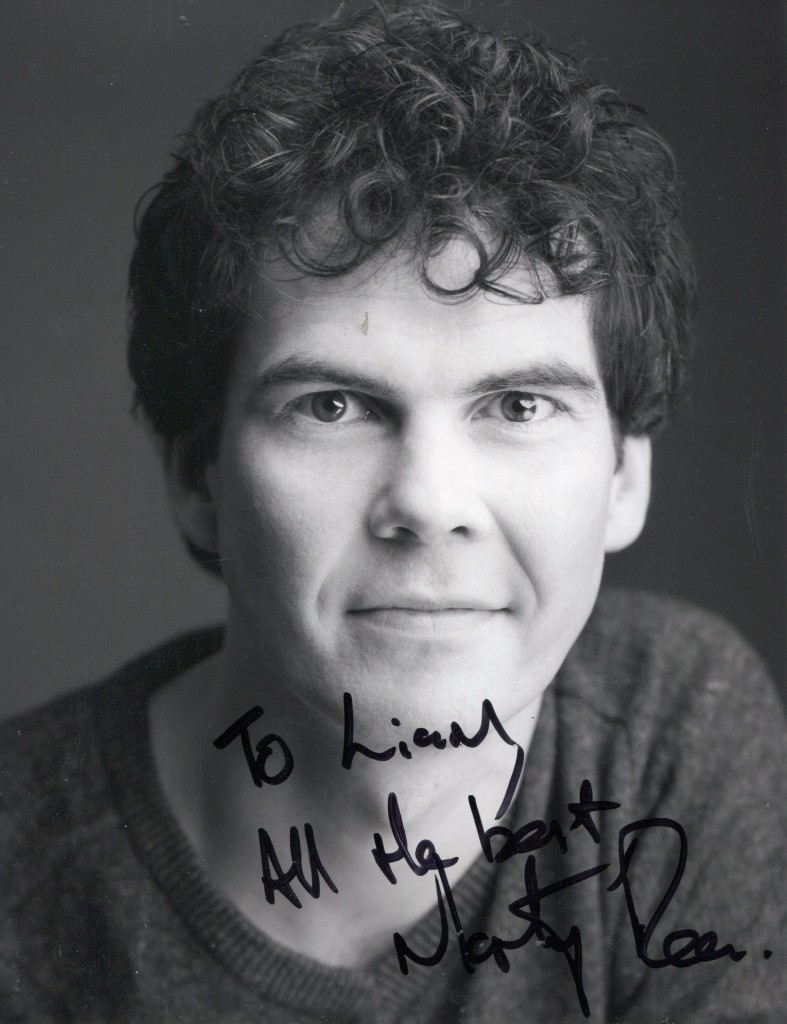

Padraic Killeen’s article in “Irish Examiner” in April 2014:
Belfast native Marty Rea relishes playing Lord Goring in Oscar Wilde’s comedy An Ideal Husband, says Pádraic Killeen.
MARTY Rea has become one of Irish theatre’s most admired actors. Having graduated from RADA in 2002, the Belfast native traded the London boards for Dublin’s and the move has paid dividends. Rea is a regular at both of Ireland’s most illustrious houses, the Abbey and the Gate, while his recent work with Druid Theatre Company has confirmed his place at the forefront of a new crop of leading men.
This month, Rea is back in the Gate, playing Lord Goring, the brilliantly self-possessed, quip-spouting star of Oscar Wilde’s comedy, An Ideal Husband. It’s a part that the Belfast man has been sizing up since playing a smaller role in the same play, at the Abbey in 2008.
“Mark O’Halloran played Goring then and it looked like such great fun,” says Rea. “So my appetite for the part was really whetted by that, and it’s proven to be as enjoyable as I suspected it to be.”
Having seen O’Halloran’s version, is there a challenge to make the role his own? “You’d think there is,” he says. “But then you realise that just because you’re a different person, it’s already going to be different. Like any part, it’s filtered through the sieve of the person who’s playing it. Something will have a different resonance for me than it would for someone else. It’s all about interpretation.”
Lord Goring is fascinating. He’s a dandy, an idler, and the epitome of Wildean wit, which allows Rea to deliver killer lines like ‘to love oneself is the beginning of a lifelong romance’. And yet, beneath all his seductive frippery Goring is also a rock of integrity, the model of the simple, humane values that Wilde himself espoused.
The character subverts the values of Victorian society, says Rea.
“That society — and we’re not all that different now — had decided what a person is supposed to be. There are ‘rules of etiquette’ and they believe if you hit all those marks then you are absolutely 100% a good person. Which is bullshit — because it means that as long as you show a good face publicly, you can do whatever you like behind closed doors. So Goring turns that on its head. He says ‘I’ll deliberately appear to be idle and careless, self-important and vain’. And, because he does, people think that he’s just senseless, that he can’t understand life or take it seriously. And they don’t perceive him as a threat. But, actually, he has the strongest grasp of what humanity is. He’s a massive humanitarian — way before his time. He’s willing to speak about people’s psychology and their drives and to try to understand why people do what they do, rather than just judge and condemn.”
Though it’s a sparkling comedy, the plot of An Ideal Husband revolves around murky themes of corruption and blackmail. Wilde himself was being blackmailed when he was writing the play, his homosexuality being used as a weapon against him. His fateful arrest for ‘gross indecency’ took place just a short while into the play’s first run in 1895.
Inevitably, then, there are many resonances between the story in the play and Wilde’s own situation.
“I’ve a line where I tell Lady Chiltern that ‘in every nature there are elements of weakness or worse than weakness’,” says Rea. “That’s certainly coming straight from the heart of the writer. And the plot itself involves the idea of a husband and wife going through a potentially huge public disgrace. And that is what the Wildes ended up having to suffer. So there’s a terrible soothsaying in that.”
Rea’s knowledge of Wilde’s life and work is extensive and he enjoys researching a role. In fact, a thirst for knowledge predates his interest in acting. Rea became involved in drama when he was 15 years old, eventually earning a scholarship with RADA (the Royal Academy of Dramatic Arts) in London.
But his study of drama was bolstered by an underlying interest in history, which was first nurtured in him by his working class family in Andersonstown, West Belfast.
In that predominately nationalist area, culture was considered important and Rea can recall his grandfather frequently getting him up to “name all the counties in Ireland, and then all the glens of Antrim, and then name the rivers in the glens”.
“My first love was natural history and particularly marine biology,” he says. “That was essentially what I wanted to do. My mother was very nostalgic for bygone days. She was always watching older films and we were always being taken to see things to do with how ‘people used to live years ago’, especially anything to do with the Famine.
“My da also had a great interest in history. And he liked Dickens and Mark Twain and was a huge Sherlock Holmes fan. But books weren’t around so much — it was more TV and film than reading. It was when I realised that you could find all these things in books that I got into Shakespeare. I bought my first Shakespeare Collected Works in a second-hand bookshop in Belfast. It was about £7.50. I remember thinking, ‘I thought Shakespeare was for posh people’. I had thought it would have to cost $500 to buy all those works of Shakespeare. I didn’t realise they knocked them out left, right and centre.”
What good fortune for Rea — and for all of us, among the great unwashed — that they do. If nothing else, it keeps theatre at least a little honest, something Oscar Wilde would have approved of, no doubt.
The above “Irish Examiner” article can also be accessed online here.


